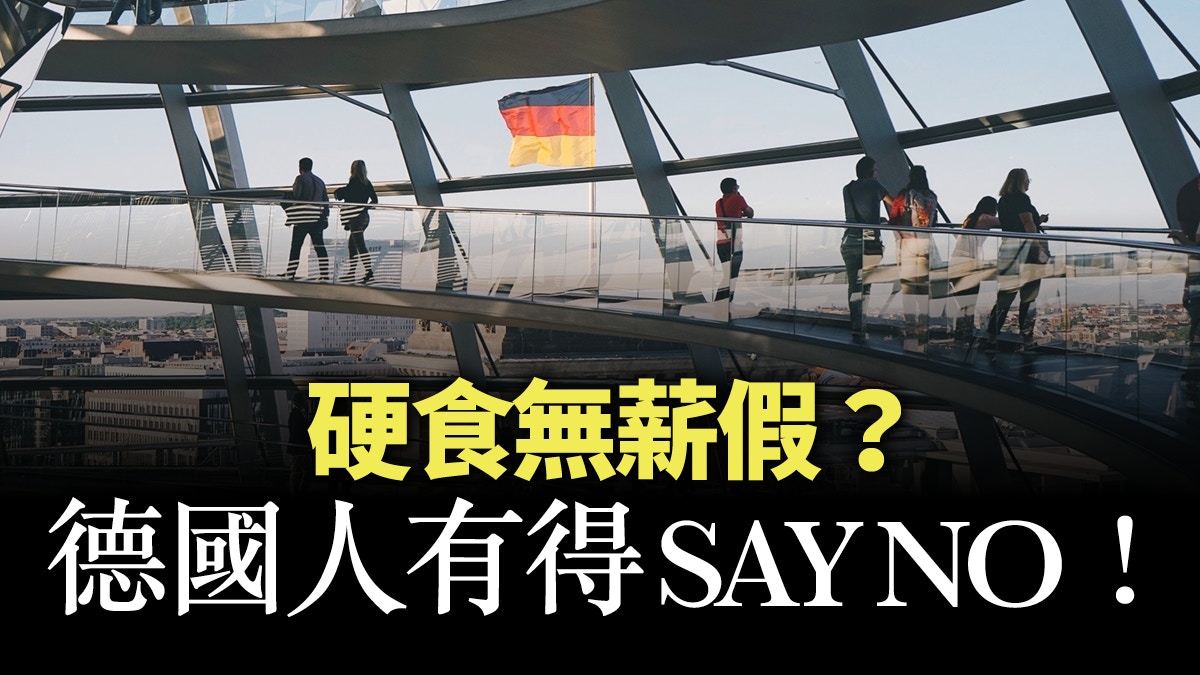01 perspective
Written by: Comment Editor
2020-02-25 18:45
Last updated: 2020-02-25 18:50The ambulatory storm and the new pneumonia pinch on Hong Kong caused depression. Enterprises need to reduce expenditures and offer layoffs or unpaid leave. Most employees who choose to protect their jobs choose unpaid leave. The actual effect is like a pay cut.
Labor seems helpless to choose one of the dilemmas, but it turns out that there are other ways out when the economy is sluggish. Germany's “kurzarbeit” allowance policy (kurzarbeit) not only avoids triggering a large wave of layoffs during the financial tsunami, but also protects the interests of employees. On the other side, if Hong Kong is to implement it, it will inevitably shake the labor relations. The question is, are we ready to promote comprehensive reform?
Employers in Hong Kong introduce unpaid leave. Union organizations remind employees to be savvy. For example, they must have textual records, understand the terms clearly, and avoid agreeing to the clause of "abandoning the right to recover in the future." Oppose unpaid leave arrangements. But having said that, Hong Kong's workers are weak, and it is difficult for them to sit on par with the management and bargain. Facing the implementation of unpaid leave by enterprises, most people may just be notified and helplessly accepted.
Tripartite collaboration between German short-time allowance labor officers
In contrast, the German example of a short-time allowance is worthy of discussion in Hong Kong. The policy was implemented during the financial tsunami with significant results. At that time, the German government relaxed labor laws. During the implementation of the shortened working hours system, the government will subsidize 60% to 67% of the difference between payable and paid wages. The Federal Labor Agency will subsidize half of the social insurance. For vocational training, the social insurance costs are borne by the Federal Labor Agency. In addition, the government has waived the above one-third employee impact ratio and simplified the administrative procedures for applying for short-term allowances, allowing the maximum claim period for short-term allowances to be gradually extended from 6 months to 24 months (now restored to 12 months) .
At the peak of unemployment in 2009, 1.5 million Germans participated in short-term allowances. If half of them were laid off, the number of unemployed would exceed 4 million, and the unemployment rate would have reached more than 8%. It can be seen that the short working hour allowance has kept a lot of jobs for many German employees, and at the same time, the wages are guaranteed.
Furthermore, this policy institutionalizes the shortening of working hours, which can be implemented by the three parties in accordance with regulations. Unlike in Hong Kong, individual employers customize their own rules. To implement short-term allowances, companies need to prove that the workload is severely reduced due to economic or irresistible accidents. The situation is temporary and unavoidable, affecting at least one-third of employees, and reducing salary by more than 10%.
Compared with Hong Kong, the German government has a deeper involvement and stronger support, for example, it can determine whether a company meets the conditions of shutdown and subsidies. In addition, employees have greater say, for example, the management must obtain the consent of the staff representative association, and detailed arrangements can be obtained.
Introducing German model requires radical reform
The "German model" is quite complete, but it is difficult for Hong Kong to do the cooking today. Germany can do this because the country has a century-old social insurance system and a shared responsibility system that balances the tripartite power of labor and management officials. In the arrangement of short working hours, enterprises must allow trade unions to participate in decision-making mechanisms, employees must pay social insurance, the government must be involved in business operations at critical moments, and they are willing to pay subsidies. Looking around Hong Kong, the government ignores labor rights and benefits, but its benefits are only improving. In addition to the implementation of minimum wages, the right to collective bargaining and unemployment protection are never available. The company treats its employees well because of the goodwill of the employer, not the guarantee of the system.
Furthermore, German employees also have a consensus that when the economy is booming, a certain amount of income is taken to social insurance, and even in adversity, the government still has considerable reserves to pay for pensions, medical care and unemployment benefits after using social security subsidies. In addition, the short-time system does not mean that employees are free. Employees also participate in vocational training in accordance with regulations and implement "stop work without school".
In contrast, Hong Kong's general migrant owners have a floating mentality and are not good at gathering power to fight for rights and interests from the government and enterprises. For risk-sharing contribution systems, such as universal retirement protection, they have only gained greater support in recent years. Timing of implementation. Hong Kong people yearn for German labor security, and envy Taiwan's cheap medical system. Singapore's HDB system is backed by solid tax and social policy support. It also depends on mutual trust between officials and the people. To emulate these fine systems, Hong Kong needs socio-economic reforms like computer re-injection. Are we ready?
[Wuhan Pneumonia] Why Unemployment Protection Failed to Rescue the Approaching Fire?
[Wuhan pneumonia] Food retail enters severe winter government subsidies should be sooner rather than later
01 perspective
Labor Security Labor Law Wuhan Pneumonia 01 Viewpoint






/cloudfront-eu-central-1.images.arcpublishing.com/prisa/3I74UEXLYRBBRPGPSGWNN6WXH4.jpg)






